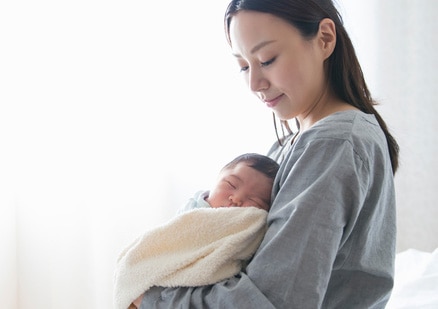During your stay

If you are transferred to a postpartum room, you’ll stay in a private room with a private bathroom, TV, and other amenities that may include free Wi-Fi and phone. Most postpartum rooms also include a rocking chair, other seating, and a pull-out bed for your partner or support person.
Your nurse will help you get comfortable caring for your newborn, and support you through umbilical cord care, diapering, bathing, swaddling, and breastfeeding.
Meals and snacks
Meals and snacks are provided during your stay — order healthy food from a menu for your meals, and snacks are available whenever you’re hungry. Your family and friends may also be able to order meals for a fee.
Rooming in
Research shows that babies who stay in the same room as their mothers adjust better, and new moms rest and recover better. Keep your baby with you as much as possible throughout your stay, so you can bond and learn to recognize your baby’s needs.
Hand-washing
As your new baby’s immune system develops, hand-washing is an important way to prevent infection. Protect your newborn by asking visitors to wash their hands before touching your baby. If anyone is sick — even mildly — ask them not to visit until they are feeling better.
Newborn photos
Ask your nurse for information on newborn photography in the hospital. Often a photographer will visit your room, and take photos if you request. Fees vary by hospital.
Newborn security
Your baby’s security is important to us. Never leave your baby unattended. If you need to be away from your baby for any reason, let your nurse know so we can make sure your little one is safely cared for.
Your hospital has security procedures to ensure the safety of your baby. After your baby is born, you, your baby, and your partner may receive matching wrist bands.
Hospital employees are required to wear badges with their name, title, and photograph. Hospital employees with privileges to care for newborns may have an additional identification on their badge.
If you’re ever uncomfortable with the person who is asking to take your baby from you, use your nurse call button to ask for an additional staff member to confirm the request. If you have any questions about security procedures, please ask your nurse.
Newborn screenings
All newborns undergo painless screening tests. Your care team will explain your baby’s tests that happen at birth and soon after.
Breastfeeding
Breast milk is nature’s perfect first food, and breastfeeding can enhance the bond between you and your baby. The American Academy of Pediatrics recommends exclusive breastfeeding for 6 months and continued breastfeeding through the first year of life.
Learn more about breastfeeding >
Support for successful breastfeeding:
- Breastfeeding classes offered by hospitals will help you learn about breastfeeding positions, milk supply, preventing and managing pain, pumping, milk storage, and working while breastfeeding.
- We encourage skin-to-skin contact, which triggers healthy baby behaviors. It helps your little one stay warm on their own, breathe on their own, and learn to nurse.
- Most labor and delivery and postpartum nurses are trained breastfeeding specialists. Hospitals also have lactation consultants available to you. Ask for help if you need it.
Lactation consultants
If you need additional support, a lactation consultant will come to help you while you’re in the hospital. Lactation consultants are also available after you go home.
Leaving the hospital
After you have your baby, you’ll be seen daily by a midwife or obstetrician who will care for you during recovery and help determine when you’re ready to go home. The length of your hospital stay will depend on a variety of factors.
If you have a vaginal birth, you may be ready go home when your baby is 1 or 2 days old. If you have a cesarean birth, you’ll need to stay a bit longer.
On the day you leave the hospital, a member of your care team will complete the discharge process with you so you can get home and settled in on your own with baby.
Secure checkout
When you’re ready to leave, your support person should bring the car up to the front of the hospital where you may have entered in labor. A staff member will wheel you and your baby downstairs after you’ve gone through a secure checkout.
Car seat
Colorado law requires that you take your baby home in a car seat. We encourage you to ask your hospital or care providers about car seat installation classes before your baby is born. It also helps to have your car seat installed a few weeks before your baby is due.
Car seat installation resources
Always read and follow the car seat instructions, as well as your vehicle seat belt instructions. You can find guidelines for safe car seat installation online.